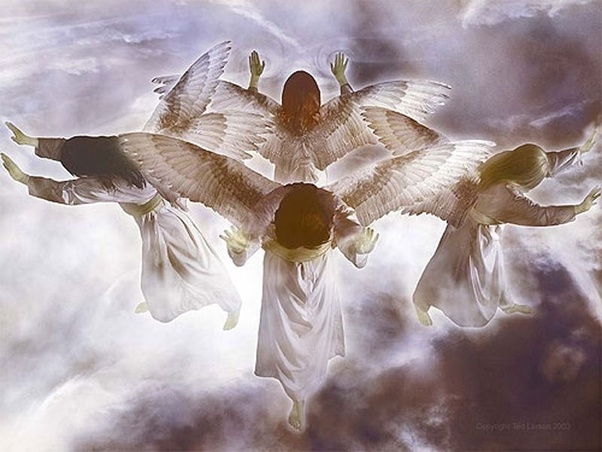Why Does God Say, “He Makes His Angels Winds”?(Hebrews 1:7, NIV)
“In speaking of the angels he says, ‘
He makes his angels winds, his servants flames of fire.’” – Hebrews 1:7 (NIV)
Question:
Does this verse mean that God turns His angels into demons or spirits of some sort?
Answer:
No, this verse does not mean that God turns angels into demons. It is a symbolic description of the nature and role of angels, not a statement about their fall or transformation into evil beings.
While the Bible does teach that some angels rebelled against God and became demons (see Revelation 12:7–9, 2 Peter 2:4, Jude 1:6), Hebrews 1:7 is not referring to those fallen angels. Instead, it quotes Psalm 104:4, where God’s faithful angels are described in poetic, metaphorical terms:
“He makes winds his messengers, flames of fire his servants.” – Psalm 104:4 (NIV)
This poetic language is rich with theological meaning. Angels are compared to wind and fire—natural forces that are powerful, swift, and awe-inspiring. The comparison highlights several truths:
1. Angels as Swift and Invisible Servants
Wind is invisible yet active, often sudden and forceful—qualities that resemble the operation of angels. In the Bible, angels often appear suddenly, act quickly, and then disappear (e.g., Luke 1:26–38, Acts 12:7–10). Their swiftness reflects their readiness to serve God.
2. Angels as Agents of God’s Power and Purity
Fire in Scripture is often associated with God’s holiness, judgment, and presence (Exodus 3:2, Hebrews 12:29). Calling angels “flames of fire” emphasizes their role in executing God’s will, sometimes with great power and judgment (Genesis 19:1,13, 2 Kings 19:35).
3. Symbolism, Not Literal Transformation
God is not saying angels are wind or fire, but that they function like wind and fire. This is similar to how Psalm 104 uses metaphorical language to describe God’s majesty:
“The Lord wraps himself in light as with a garment; he stretches out the heavens like a tent…” – Psalm 104:2 (NIV)
Just as light isn’t literally clothing, the angels aren’t literally wind or fire. This is a way to communicate their spiritual nature and divine mission.
Jesus Christ: Superior to Angels
The context of Hebrews 1 is crucial. The writer is contrasting angels with Jesus to show His absolute superiority. While angels are servants—swift and powerful—Jesus is the Son, seated on the throne:
“But about the Son he says, ‘Your throne, O God, will last for ever and ever; a scepter of justice will be the scepter of your kingdom.’” – Hebrews 1:8 (NIV)
Christ is not merely another spiritual messenger—He is the exact representation of God’s being and heir of all things (Hebrews 1:2–3). Angels worship Him (Hebrews 1:6), and His position is far above theirs.
The Role of Angels in Relation to Believers
The chapter concludes with this important statement:
“Are not all angels ministering spirits sent to serve those who will inherit salvation?” – Hebrews 1:14 (NIV)
Angels are ministering spirits, meaning they are sent by God to help and protect believers. Their mission is to support God’s redemptive plan, especially for those in Christ.
Conclusion
So when God says He makes His angels “winds” and His servants “flames of fire,” He is using figurative language to express their divine purpose and power. They are mighty and active in fulfilling God’s commands—but still only servants. In contrast, Jesus is the Son, enthroned and eternal. And those who believe in Him will also share in His glory (Romans 8:17), served by angels according to God’s purpose.
Praise God for His Son and His heavenly hosts that serve His will.




About the author